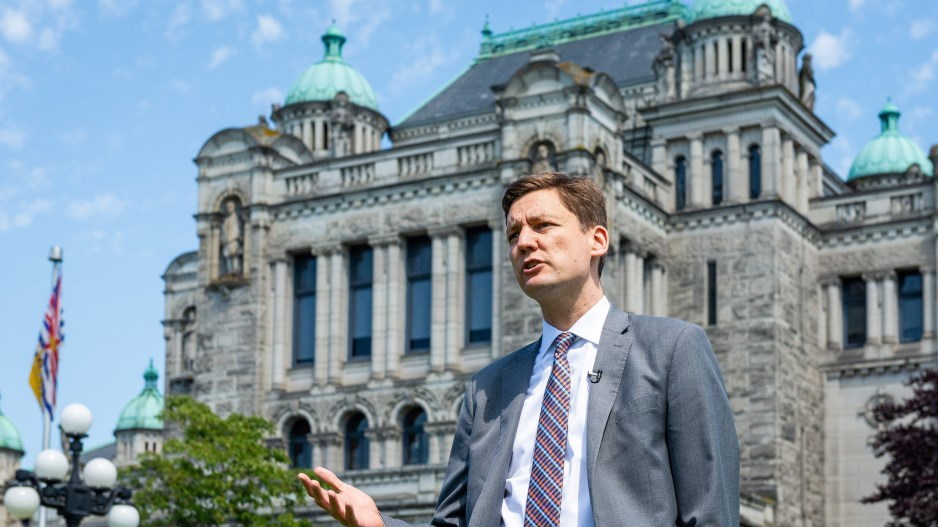As the year winds down, it’s worth reflecting on the top B.C. political stories for 2023 (at least in my view).
Here is my top five list:
- The NDP government’s far-reaching housing legislation.
Four landmark bills were passed into law in the fall sitting and they fundamentally alter the powers of municipalities and their relationship with the provincial government.
Whether the legislation has the desired effects of a greater supply of housing units and, eventually, lower prices for housing remains to be seen and likely won’t be measurable for a while yet. Still, after years of a provincial government simply standing by while the housing crisis deepened (although the NDP did introduce a housing speculation tax in its first term) the Eby government has moved aggressively to reverse course.
- The (apparent) rise of the B.C. Conservative Party and the fracturing of the center-right part of the political spectrum.
Several recent polls by reputable pollsters have all put the party either significantly ahead of the B.C. United Party or statistically tied with it.
If the trend continues and the B.C. Conservatives continue to put distance between themselves and the beleaguered B.C. United Party, it could mark an historic shift on the political landscape that could either greatly favour the NDP or pose a greater threat to it. If the B.C. Conservatives can turn themselves into the so-called “free enterprise coalition” that could spell bad news for the ruling party.
Of course, the B.C. Conservatives could also turn out to be a mirage. The party has been given a free ride so far, and if it clings to significantly right-wing policies its popularity could be short-lived and perhaps provide an opening for a B.C. United comeback.
- The ongoing opioid crisis and drug decriminalization.
Since the public health state of emergency regarding toxic drug use was declared in 2016, more than 13,500 people in B.C. have died from the poisonous drug supply. About 200 people die each month and last year the B.C. Emergency Health Services responded to more than 35,000 emergency calls for overdoses and poisonings.
No matter what the response — tougher enforcement measures, decriminalization or something in between – the statistics remain constant and unchanging. The NDP government launched its decriminalization policy at the start of the year, but it appears to have had little positive impact. Yet, I defy anyone to prove they have the magic solution to this crisis.
- The mounting problems in the public health care system.
A lack of human resources has led to numerous (but temporary) closures of health care facilities such as emergency rooms (particularly in rural regions) and now timely cancer treatment appears to be an emerging health care crisis.
A rapidly aging population means the number of cancer cases will continue to escalate and as this year ends it appears cancer treatment will be the dominant issue in health care.
- The Surrey police transition.
This ongoing and messy battle between the NDP government and Surrey Mayor Brenda Locke often dominated headlines the entire year and while the issue may have been decided by legislation the political fight continues and could play a prominent role in the outcome of the election in some of the 10 provincial ridings in Surrey next year.
Next week: I look into my crystal ball and try to predict the dominant stories in the coming year of 2024.
Keith Baldrey is chief political reporter for Global BC.




